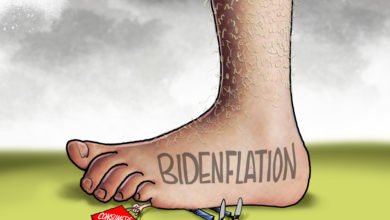Despite U.S. Energy Dominance, OPEC Targeted By Congress
By Joe Hammond
The fracking revolution may soon transform the United States into the world’s largest producer of oil, but that isn’t stopping a bipartisan group of congressmen from working to limit the power of OPEC.
Versions of a bill known as the No Oil Producing and Exporting Cartels Act are now working their way through House and the Senate. If passed, it would empower the U.S. Justice Department to take legal action against oil producers for antitrust violations and allow the stripping of sovereign immunity protections that have protected foreign actors in the past. This is not the first time Congress has sought to punish OPEC – a union of petroleum producing countries in the Mideast, Africa and Latin America that includes Saudia Arabia, Iraq, Iran, Nigeria and Venezuela. But previous presidential administrations have blocked the move over concerns that it could lead to greater instability in oil markets.
President Trump, however, tweeted late last month about his concern over OPEC’s policies, signaling that the administration may be open to a new policy toward OPEC.
Oil prices getting too high. OPEC, please relax and take it easy. World cannot take a price hike – fragile!
— Donald J. Trump (@realDonaldTrump) February 25, 2019
With OPEC‘s production at its lowest levels since March 2015, oil prices have risen steadily over the past three months leading to Trump’s Tweet and also more concrete action.
The Department of Energy last week announced that it would tap the U.S. Strategic Oil Reserve for a “price-competitive sale of up to six million barrels of SPR crude.”
In a sign of growing U.S. control over the world’s oil market, even the head of OPEC appeared to admit last week that his group is no longer the market’s driving force.
“Without this shale revolution we’ve seen in the U.S. the world would have been in major, major energy chaos,” said OPEC Secretary General Mohammad Barkindo in an interview with MSNBC earlier this week.
Barkindo’s conciliatory tone suggested that the organization was keen to avoid a showdown with the United States over the price of crude.
In 2016, OPEC signed a historic agreement with Russia and nine other oil producers to cap production. But the price of oil has stayed low despite OPEC’s best efforts.
This is because the U.S. shale industry ruthlessly cut costs and developed new technologies to remain competitive. Shale technology is driven by a process known as “fracking” that provides access to relatively small deposits of oil that were previously impossible to extract profitably. Despite the fact that the technology was pioneered in the Soviet Union, today the United States is the only country using Fracking technology on a large scale. By some estimates America is set to be the world’s largest oil producer by 2019.
There are other signs that OPEC‘s influence is waning. Despite working closely with Russa, a non-OPECoil producer, the group has failed to increase oil prices. Even after Gabon joined the group that in 2016 followed by the Republic of the Congo in 2018 the price has only gained modestly.
In a blow to the groups prestige, Qatar, one of OPEC‘s first members and the world’s largest exporter of liquified natural gas, formally left the organization at the beginning of this year.
“The strongest organization in the oil market is not even OPEC, it is the United States of America,” said former Algerian Prime Minister Ahmed Sid Al Ghozali, who was also the former oil minister of his country and delegate to OPEC in the 1970s, “It’s not OPEC that determines prices. It’s not OPEC politics that determines the price of petrol and the price of petrol can never be set without the acquiesce of the US.”
Source: American Media Institute




If a rise in the global price of oil is dependent on the United States how is it a bad thing? The United States has been at the mercy of OPEC since the early 1970’sand we’ve witnessed the the hegemony of many smaller nations seeking to dominate the region they inhabit. Maybe now is the beginning of free market oil prices led by the United States and the abandonment of the monopoly driven by OPEC.